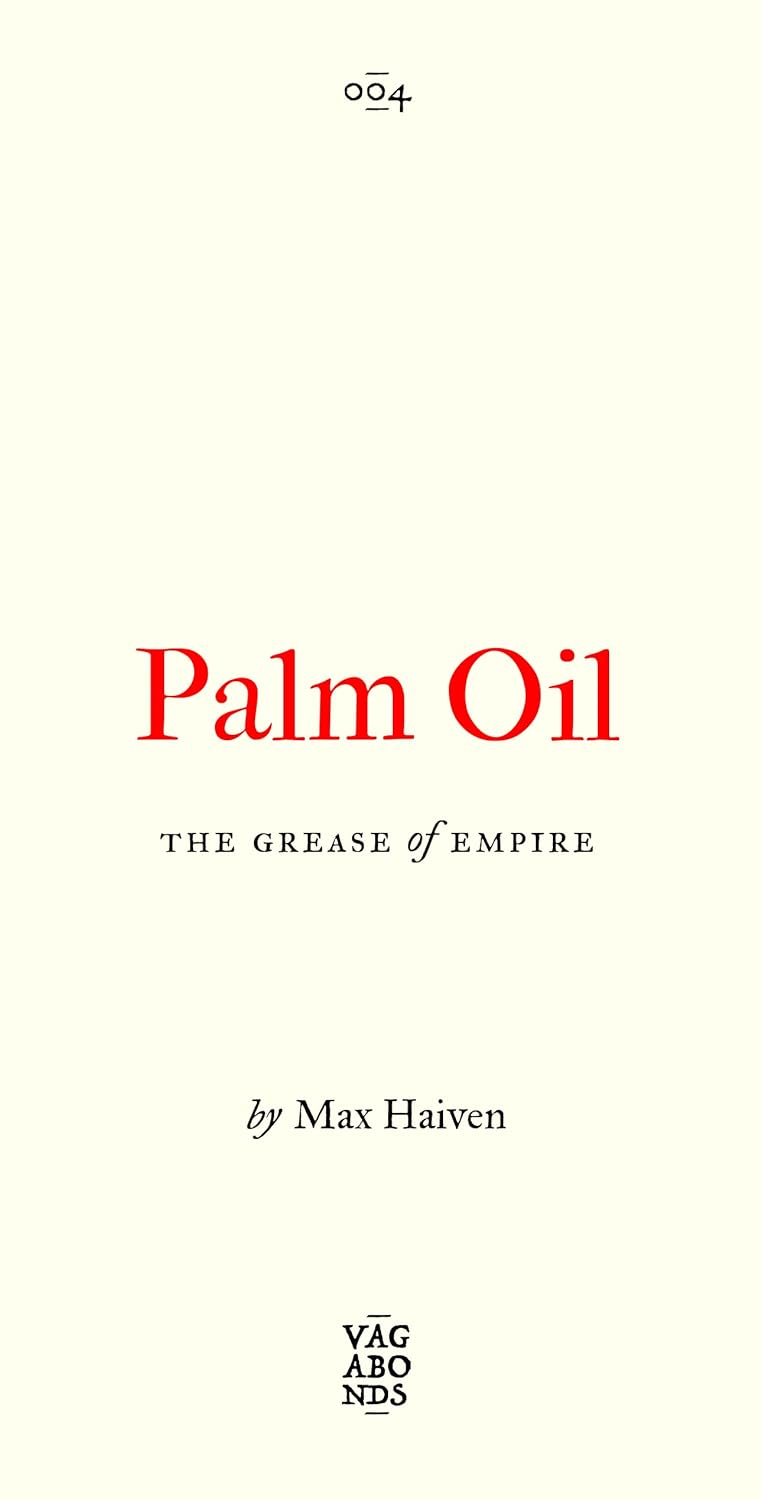To keep his text within the literally narrow parameters of this series, Haiven’s approach is necessarily selective. Thus, he alludes to — but does not illustrate — so many elements of this industrial juggernaut, from the nuts and bolts of the palm oil production process, to the details of palm oil’s harm to biodiversity, to the specifics of labor organizing within the industry today.
This is by design. Instead of a comprehensive account, Haiven employs vignettes, brief parables that apparently have their origins in a series of “modules” Haiven developed while teaching material culture and capitalism at the Nova Scotia College of Art and Design.
Thus, one chapter begins with an extended excerpt from the 2018 film Black Panther and a meditation on the Benin Bronzes. Another chapter starts by noting that Palm Oil itself was written on a machine constructed with palm oil, by an author whose energy is provided by palm oil, and may be read on pages or with ink derived from palm oil.
In one inspired passage, Haiven notes that Pablo Picasso’s famous painting Guernica not only documented the violent consequences of palm oil (a key component of dynamite was almost certainly cheap glycerin, derived from palm oil) but was itself literally created with palm oil (a key component of the paint Picasso used for his large canvasses was, again, cheap glycerin).
Among the most compelling of Haiven’s vignettes is his narration of the systematic starvation of American prisoners who are so chronically undernourished that they rely on a shadow economy of instant ramen noodles in order to get enough calories to survive (and labor). Instant ramen — which has the benefits of an “almost infinite shelf-life,” an “extremely cheap price,” and “a reliable 375 calories” — typically contains palm oil, Haiven tells us.
Yet as the scholar Alice Rudge noted in a recent essay, “the paper on which Haiven relies to relate this story in fact makes no mention of palm oil.” And while Rudge agrees with Haiven that the ramen noodles likely contain palm oil, Haiven’s narrative choices force him to rely on “broader assertions regarding very global processes in which the place of palm oil itself remains unclear.”
This is a fair criticism, but it’s also kind of Haiven’s point. For palm oil is not truly Haiven’s subject. Capitalism is. Palm oil “helps us map” the forms of capitalism that triumphed over the last century, he writes. It epitomizes and exemplifies; it was there with the bayonet and the bomb and remains with the stock ticker and glowing laptop screen and rations of the mass incarcerated; it is a product stripped of its distinctive qualities, fabricated by communities rendered invisible by dominant media sources, inescapably intertwined in a million other products and processes.
